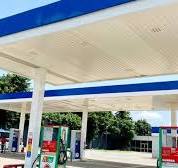
As the world moves toward a cleaner and more sustainable energy future, compressed natural gas (CNG) has emerged as a leading alternative fuel. With its lower environmental impact and cost-effectiveness, CNG is rapidly gaining traction globally and in Nigeria. Establishing a CNG Refilling and Conversion Hub in Nigeria represents a significant opportunity to support the country’s energy transition, reduce dependence on traditional fossil fuels, and address growing energy demands.
Globally, the CNG market is experiencing robust growth, driven by the increasing need for cleaner energy alternatives to combat climate change. According to industry reports, the global compressed natural gas market was valued at US$ 112.64 Bn in 2020. It is estimated to expand at a compound annual growth rate (CAGR) of twelve point three percent (12.3%) from 2021 to 2031. The global compressed natural gas market is expected to reach the value of US$ 465.52 Bn by the end of 2031.
Some of the factors fueling this growth include:
Environmental Benefits: CNG emits significantly fewer greenhouse gases compared to diesel and petrol, making it an environmentally friendly option.
Economic Viability: With lower production and maintenance costs, CNG is a cost-effective fuel alternative for both private and commercial vehicles.
Government Policies: Many countries are introducing incentives and regulations to promote the use of CNG in transportation and industries.
Major markets for CNG include North America, Europe, and Asia-Pacific, where governments and industries are actively adopting alternative fuels to meet sustainability goals. Africa, though still in its nascent stages, is emerging as a key growth region, with Nigeria leading the charge.
In Nigeria, the demand for CNG is steadily increasing due to several factors:
Rising Fuel Costs: With fluctuating global oil prices, CNG offers a more stable and affordable alternative for consumers and businesses.
Environmental Concerns: As Nigeria grapples with environmental challenges, the adoption of cleaner fuels like CNG is critical to reducing emissions.
Government Initiatives: Policies promoting the use of natural gas, including subsidies and incentives for conversion, are encouraging the transition to CNG.
Urbanization and Population Growth: Nigeria’s growing urban population is driving the demand for efficient and cost-effective transportation solutions, further bolstering the CNG market in Nigeria.
The Nigerian government has recognized the potential of CNG as a viable alternative fuel and is actively promoting its adoption through initiatives like the National Gas Expansion Programme (NGEP). These efforts aim to reduce the country’s reliance on imported petroleum products while leveraging its abundant natural gas reserves.
Setting up a CNG Refilling and Conversion Hub in Nigeria involves several critical steps to ensure the facility meets market demands and operates efficiently.
Key Components of a CNG Facility
CNG Refilling Stations: Equipped with compressors and storage tanks, these stations facilitate quick and safe refueling of vehicles.
Conversion Centres: Specialized workshops where vehicles are retrofitted to run on CNG, including the installation of CNG kits and tanks.
Distribution Infrastructure: A network of pipelines or transportable cylinders to ensure a steady supply of natural gas to the facility.
The primary raw material for a CNG facility is natural gas, which Nigeria has in abundance, with proven reserves of over 200 trillion cubic feet. Advanced compressors, storage tanks, and refueling equipment are essential technologies for efficient operations. Collaboration with global technology providers can ensure access to the latest innovations in CNG infrastructure.
Compliance with international and local safety standards is paramount to ensure the safe handling, storage, and distribution of CNG. Regular training and certification of staff are also crucial for maintaining operational excellence.
The CNG market in Nigeria is evolving, influenced by several key trends:
1. Increased Vehicle Conversion: More private and commercial vehicles are being converted to run on CNG, driven by the cost savings and environmental benefits it offers.
2. Expansion of Infrastructure: The development of more refilling stations and conversion centers across urban and semi-urban areas is making CNG more accessible.
3. Technology Adoption: The integration of advanced technologies like smart meters and automated refueling systems is enhancing efficiency and user experience.
4. Collaboration and Investment: Partnerships between government, private investors, and international stakeholders are accelerating the growth of the CNG sector in Nigeria.
Establishing a CNG facility in Nigeria has significant economic and environmental benefits:
Job Creation: The construction and operation of CNG refilling and conversion hubs generate employment opportunities across various skill levels.
Cost Savings: CNG is cheaper than traditional fuels, reducing transportation costs for businesses and households.
Environmental Protection: By emitting fewer pollutants, CNG helps mitigate air pollution and combat climate change.
Additionally, leveraging Nigeria’s vast natural gas reserves for domestic energy needs reduces reliance on imported fuels, enhancing energy security and contributing to economic stability.
While the prospects for CNG in Nigeria are promising, the sector faces challenges such as:
Infrastructure Deficit: The limited number of refilling stations and conversion centers hinders widespread adoption.
Awareness and Education: Many consumers are still unaware of the benefits of CNG, necessitating awareness campaigns.
Initial Investment Costs: Setting up a CNG facility requires substantial capital, which may deter potential investors.
However, these challenges present opportunities for innovation and collaboration. Public-private partnerships and incentives can bridge infrastructure gaps, while targeted campaigns can increase consumer awareness and drive demand.
The growing interest in CNG as a cleaner, cost-effective fuel alternative highlights its potential to transform Nigeria’s energy landscape. Establishing a CNG Refilling and Conversion Hub in Nigeria is not only a profitable venture but also a crucial step toward achieving the country’s energy and environmental goals.
By leveraging its natural gas reserves, fostering technological innovation, and addressing infrastructure and awareness challenges, Nigeria can position itself as a leader in the African CNG market. The time to invest in CNG infrastructure is now, as the demand for sustainable energy solutions continues to rise both locally and globally.
Custom Research Request
Still haven't found what you're looking for?
Speak to our Custom Research Team.
